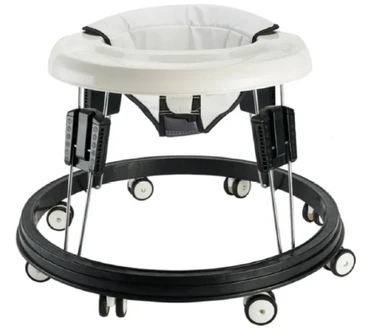An elderly Queens woman's home was stolen while she was under hospice care
- Attorney General Letitia James announces indictments against two suspects accused of stealing the home of an elderly Queens widow in hospice care.
-
Defendants allegedly forged property transfer documents, laundered proceeds, and pocketed more than $300,000.
-
Case marks the first prosecution under New Yorks new law criminalizing deed theft and granting the AG original jurisdiction.
New York Attorney General Letitia James has announced the indictments of two people accused of orchestrating a brazen deed theft targeting an elderly widow in Kew Gardens Hills while she was receiving end-of-life hospice care in her home.
Deepa Roy, 68, of Manhattan, and Victor Quimis, 39, of Queens, allegedly forged the signature of Mrs. Renuka Bherwani to unlawfully transfer ownership of her home which she had owned for nearly four decades first to themselves, then to Quimiss company, Hunter Studios & Developer Corp. Prosecutors say Quimis used the fraudulent deed to secure a $552,500 mortgage, netting more than $300,000 in illicit proceeds after paying off existing debts on the property.
Forged deeds and stolen proceeds
The Attorney Generals Office (OAG) says the scheme began in 2022, when Roy befriended Bherwani under false pretenses, visiting her regularly and attempting to move into the home a request her family rejected. In October 2024, Roy and Quimis allegedly used a forged deed and other falsified documents, including a water and sewer registration form, to take the property without payment. A Nassau County notarys signature was forged on the paperwork.
Two months later, prosecutors say, they forged a second deed to transfer the home to Hunter Studios. Quimis then obtained the mortgage and laundered $312,037.57 through the companys accounts, using the money for personal expenses. Roy allegedly received at least $15,000 from the proceeds.
The theft came to light when Bherwanis son and daughter-in-law, who held her power of attorney, opened a letter from the city congratulating Quimis as the new owner. They reported the case to OAG. Quimis was arrested August 4 and faces multiple felony counts, including grand larceny, mortgage fraud, and money laundering. Roy remains at large and faces similar charges.
First case under new law
This is the first prosecution under New Yorks new anti-deed theft statute, championed by James and signed into law earlier this year. The measure criminalizes deed theft, gives the Attorney General original jurisdiction to prosecute it, and strengthens protections for vulnerable homeowners.
Deepa Roy and Victor Quimis preyed on an elderly widow in hospice to steal the home she owned for nearly 40 years, James said. I will continue to use the law as both a sword and a shield to stop these despicable crimes and ensure this home is returned to the Bherwani family.
If convicted, both defendants face up to 25 years in prison. The Attorney Generals Office urged any New Yorker who believes they have been a victim of deed theft to call 1-800-771-7755 or email This email address is being protected from spambots. You need JavaScript enabled to view it..
Laws are spotty elsewhere
New York and Texas are the only states with explicit laws criminalizing deed theft, according to a survey of state statues. Other states may rely on general fraud, forgery, or theft statutesor are beginning to address the issue with reforms or proposed bills. While many states prosecute deed fraud under broader statutes like forgery, grand larceny, or real estate fraud, only a small number have enacted dedicated, deed-theft laws:
States with dedicated deed-theft legislation
-
New York
As of July 2024, New York enacted a law that criminalizes deed theft explicitly. Under the updated Penal Law, deed theft is treated as grand larcenywith escalating felony tiersdepending on the circumstances (e.g., victim's vulnerability, number of properties involved). The Attorney General also now has original criminal jurisdiction over these cases.
-
Texas
In 2025, Texas passed laws aimed specifically at preventing deed fraud. Notably, Senate Bill 1734 allows victims to challenge fraudulent deeds in court with no filing fee, while SB 647 enables county clerks (and prosecutors) to refuse suspicious filings and requires notification to property owners.
States without specific deed-theft laws (but facing the issue)
-
Pennsylvania
Currently lacks a specific statute for deed theft, though related offenses like forgery and fraud are covered under general criminal law. However, House Bill 1406 has been introduced to define and criminalize deed fraud explicitlythough it has not yet become law. -
Florida
Has taken preventive steps by requiring clerks offices to provide free property fraud alert systems to homeowners. While this helps detection, Florida does not currently have a criminal statute specifically for deed theft.
-
Georgia
Deed fraud remains a concernpartially due to minimal ID verification requirements for filing deeds. Though a property fraud registry exists to issue alerts, Georgia also lacks a dedicated criminal law targeting deed theft specifically.
How to protect your property
Here are practical steps homeowners can take to guard against deed theft and property fraud:
1. Monitor Property Records
-
Sign up for a property fraud alert system if your county offers one. Many jurisdictions (including Florida, parts of Georgia, and counties in other states) allow you to register for free alerts whenever a document is recorded against your property.
-
Check your local recorder or register of deeds website for online access to property records, and periodically search your name and property address.
2. Secure Your Personal Information
-
Keep your Social Security number, birth date, and financial details private to reduce the risk of identity theft.
-
Shred old documents and avoid posting sensitive information online.
3. Use Title and Identity Protection Services
-
Some title insurance companies and private firms offer title monitoring services that track filings involving your property.
-
Banks and credit unions sometimes bundle these services with identity theft protection.
4. Check Your Mail and Bills
-
Review all correspondence from your mortgage company, tax assessor, or utilities for unexpected changes in ownership or billing name.
-
Watch for missing bills or sudden notices that accounts have been closed or transferred.
5. Keep Your Contact Information Current
-
Make sure your local recorders office and tax assessor have your correct mailing address so that official notices reach you promptly.
-
Consider listing an additional trusted contact.
6. Act Quickly if You Suspect Fraud
-
Contact your local recorders office to verify recent filings.
-
File a police report and notify your county district attorney or state attorney general.
-
Consult a real estate attorney immediately the sooner you act, the better your chances of reversing fraudulent transactions.
Posted: 2025-08-11 01:05:19
























